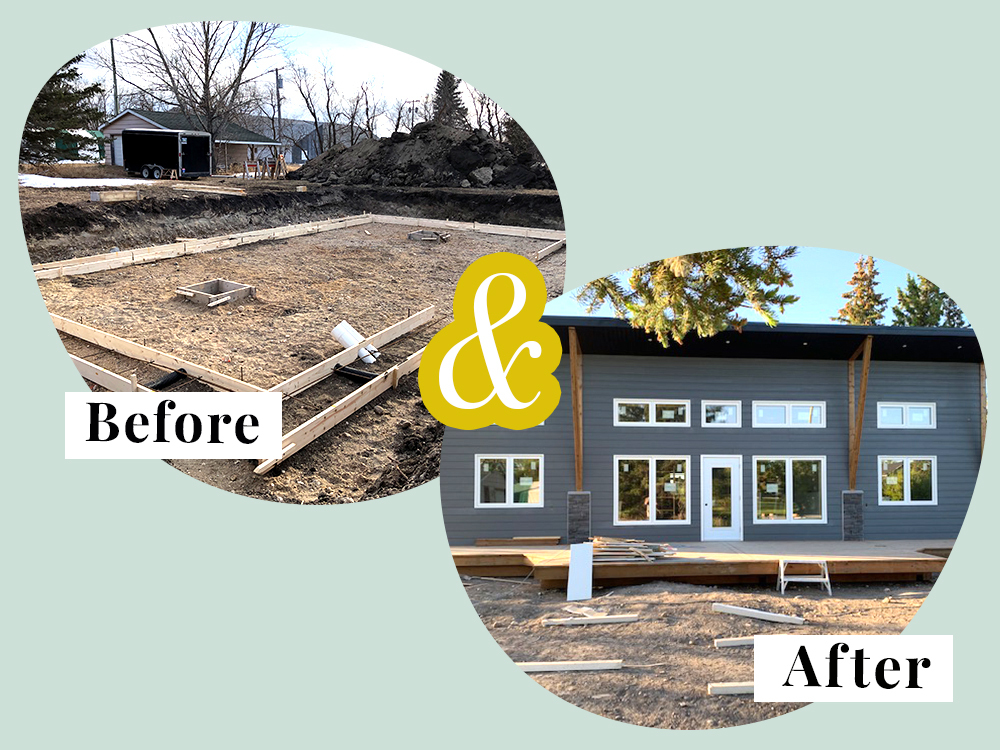3 Financial Questions To Ask Yourself Before Planning Your Wedding

After two and a half years with my sweet, caring, hilarious boyfriend, we decided to tie the knot and make this thing legal. We took ourselves on a little engagement vacation and rode bikes around Mackinac Island in Michigan, proposing to each other with a ring for me, a watch for him, and wine in a water bottle for us both. It was pretty nontraditional, as far as capital-P Proposals go, but very romantic. We’re not trying to shuck norms just for the rebellious thrill of it all (but man, the wind in your hair when you defy tradition is fantastic), but more because we feel like we should be doing this big step in our lives in a way that really reflects the people we are, and the partnership we have. To do that, we’re going to need a really solid financial plan.
My fiance and I are both late twenty-somethings with a fair amount of debt. I am almost certainly not the first person to shout to the heavens, “WEDDINGS ARE SO EXPENSIVE!” while clutching at my hair like a Cathy comic strip. But it’s a real thing! Setting aside money for a wedding, especially while dealing with a mountain of debt, can feel like downright Sisyphean — when even a dang cake is hundreds of dollars. And to add insult to injury, the Wedding Industrial Complex doesn’t really care much for my long-term financial goals. Your wedding is supposed to be the best day of your life, the blogs whisper, so why not spend all of your money forever? In fact, one wedding website I saw actually tried to tell me that the best way to save for my wedding was to either A) ask my parents, B) take out a loan, or C) SELL MY CAR(!?). Ack!
My fiance is a very financially-minded person, which is one of the things I really love about him. It makes it easy to talk to him about money without judgment, and man, when you’re trying to save a large chunk of money, your limitations can feel like a very personal judgment against you as a person. We sat down and talked frankly about what was important to us, what we think really makes a wedding. We figured out pretty quickly that doing this would involve a compromise, in one way or another.
This is not to say that we’re not going to be able to throw the wedding that we really want to have! (And you, out there, fellow Cathys! You can do it too!) But it comes down to how we prioritize three questions:
1. When would you like to get married?
Marriage is a very romantic thing, but it’s also a very practical thing. For us, being married will mean I can put him on my insurance as a family member, and our taxes will get easier for both of us when we file jointly. We’re trying to save our money for a house, in addition to saving for a wedding, and being able to consolidate costs will make that goal easier. Because of that, we’d like to get married relatively soon. Your mileage may vary, obviously — sometimes combining incomes can put you in a higher tax bracket, and that can actually cost you more in taxes — but for us, the sooner the better. We live like old married people already, anyway.
The other thing to consider is “wedding season,” the times that are most popular for people to get married in the year. This varies based on the vendors and venues we’ve been looking at, but it seems to be spring and fall months, and, weirdly, December. Getting married during wedding season can make things more expensive. For us, we’re weighing whether getting married next September like we’d like to is worth the cost. On the other hand, months like January and February would be great in terms of cost, but we live in Chicago, and those months can be brutal, weather-wise. It’s all a trade-off.
2. What makes a wedding to you? (And how much does achieving those goals cost?)
Lots of wedding websites and magazines will spin stories about what makes a wedding, and what things you must, just absolutely must have. Look. To get married, you only have to sign a marriage license. That’s it! Everything else, including the random decorative antique bicycle, is pretty optional.
We’re not religious people, my partner and I, so it’s not so important to us that we have a church wedding. It’s also not super important that the wedding be filled with flowers, or that I wear a long and sweeping ball gown. (There’s nothing wrong with prioritizing any of those things! They just don’t reflect our particular values.) What is important to us is gathering our friends and families around, and being able to hang out with them while we laugh and dance all night. We’d like to give them good food and drink, and tell them how much it means to us that they are in our lives.
To estimate how much a party like that might cost, we’ve looked online for quotes from venues we like the look of (Wedding-Spot.com, for instance, had some helpful estimates), looked at catering package options on the websites of restaurants we like, contacted some vendors ourselves, and researched other people’s wedding blogs to see what they did with their budgets. We put together a top-ten list of venues, and broke them all down into respective fact sheets for what they cost, on average, and what they offer. It’s not going to be a 100% accurate number until we’re in the nitty-gritty of planning, but it’s giving us a good ballpark figure to see how much what we want to do will cost.
3. How much money can we save each month?
My fella and I are pretty fortunate in this regard. We’re living together, and splitting bills, but we also make more money than our costs each month. That’s nothing to sneeze at! I’m working on paying off my loans, and he’s working on paying off his, but beyond that, there’s a small pile of money we can throw into savings every month. What’s important, I mean really important, for me to remember, is that discretionary spending — the stuff I buy just for me — is important to preserve! I can cut back here or there, certainly, and being frugal is a great and noble thing. But this is something I know I struggle with: if I stretch myself too thin, I might lean on a credit card in a moment of desperation for, let’s say, a new pair of shoes to replace the ones I just accidentally broke. And then I have a balance on my credit card and no room in my budget to pay that off. It starts a debt death-spiral, and when wedding planning is already really stressful, I certainly don’t need to add to it with the words “debt death-spiral.” I’m working hard to make sure that I am setting realistic goals for what I can save, and my partner is, too.
*****
These three questions form the variables of a teeny little equation that told us how to save for our wedding:
W= M x T
(Where W is the Wedding stuff that’s important to you, M is the Money you can save each month, and T is the Timing of when you want to get married)
The first step in solving the equation was figuring out what our priorities are. For us, we’re less tied to the idea of a big, old-fashioned wedding than we are to the idea of getting married relatively soon, so we left the Wedding Stuff variable blank, and focused on the Timing. We’d like to get married in September of next year, near the anniversary of when we met, because it’s an important time for us. We also know our Money variable, because there’s a limit to the amount we can save. We, very fortunately because of our jobs and shared expenses, can save about $500 a month. Knowing those two variables, we know that we’ll have $10K to spend on our Wedding Stuff by next September. That sets our expectations for what stuff we can afford to do, and what venues, catering, and decorations will fit into that amount.
If we had different priorities about it — if there was some venue that was very important to us, for instance — we could have filled in the equation in a different way, by knowing how much The Wedding Stuff costs, and how much Money we can save each month, we’d know how long a Time it would take us to have the money to afford everything. We could figure out how much we’d need to save each month if we knew what kind of Wedding Stuff we wanted, and the Timing of the wedding. We can even use this as a tool just to see how long it would take to afford basically anything we’d like to buy — filling in what we’d like to buy in the W, setting an amount to save each month in M, and seeing how long that will take by solving for T.
Of course, talking about all this stuff with my fiance was less A Beautiful Mind and more A Series Of Conversations Where We Laughed And Cried and Took Breaks To Watch Cartoons. We needed to be honest with each other about the things that mattered to us, as well as our financial limitations. We frequently remind each other, we can afford anything, but not everything. (Thanks, Paula Pant!) We want to get married and have a fun and exciting party with the people we care about all around us, but we also want to make it to the other side of that party with a strong financial foundation to build our married life together upon. That means, for us, we’re not going to be selling any cars or taking out any personal loans.
Your mileage may vary, I will continue to shout! The wedding that is important to you might be a big old traditional affair, full of flowers and a live band. That sounds lovely! I’d love to attend. But if you’re trying to afford it all yourselves, maybe take a peek at our little equation, and see how you can balance it all out, so you too can get married without taking on debt together right off the bat. Save that headache for the house buying, friends.
Elizabeth Siedt is a Chicago-based receptionist by day, and a writer, improviser, and audiobook narrator by night. See all her side hustles at her website, Lizardjellybean.com.
Image via Unsplash




